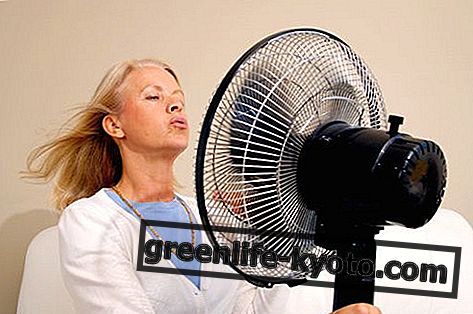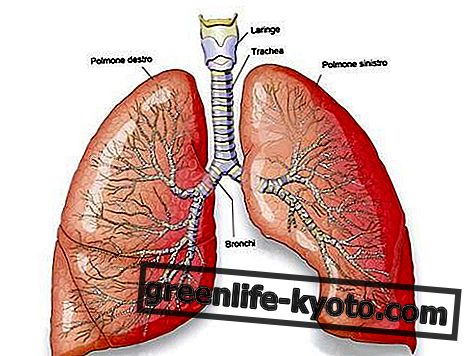
Nasal washes to prevent seasonal ailments
Nasal washes are a simple but effective way to prevent seasonal ailments. Children, especially the younger ones, have very small nasal cavities; the stuffy nose, therefore, is a very frequent problem, which is often complicated in more annoying disorders such as brochitis, bronchiolitis and otitis .
If the child is already cooled it would be advisable to do nasal washes a couple of times a day, for example morning and evening. For preventive purposes, however, it may be sufficient on alternate evenings.
To make nasal washes you need a syringe and 3 or 4 ml of physiological solution: take the physiological solution with the syringe, remove the needle and spray the liquid in the child's nose, first in one nostril, then in the other; the child must stand with his head tilted, first on one side and then on the other.
On the market there are also bottles of physiological single portion, to be sprayed directly into the nose. Alternatively, a specific sea water based product can be used.
Do you know Jala neti, nasal washes of Hatha yoga?
Hygiene as prevention
Another method that is as simple as it is effective to prevent seasonal ailments in children is to get them used to following some simple habits:
- Wash your hands often, especially when you come home from school, gyms or other crowded areas, and before every meal. Hands should be washed thoroughly with soap and water.
- At the first signs of a cold, if you use paper handkerchiefs, throw them immediately after use and do not let them stand in backpacks, folders, or bedrooms. If using handkerchiefs, avoid repeated use; wash them immediately and at very high temperatures.
- At the first symptoms of seasonal ailments, stay at home . We also think of others: we do not send children to school or other communities if they show symptoms of a flu or parainfluenza infection.
Cough in newborns: advice and natural remedies
Other measures to prevent the ailments of change in children
Habits and diet are also important to prevent seasonal ailments in children.
- Clothing: the best time to cool down is when the weather is unpredictable and in fact at the change of season we all suffer from colds, coughs and so on; if we dress too much the children sweat and get sick, if we dress them too little they cool and get sick anyway.
The ideal is to dress them in onion, for example: undershirt, long-sleeved or short-sleeved t-shirt in cool cotton, a brushed or plush jacket according to the climate; it is also advisable that they always have a waterproof jacket or cape with them to prevent them from getting wet in case of rain, and a light scarf to protect the throat in case of wind.
- Nutrition: a healthy and balanced diet, rich in seasonal fruits and vegetables, helps prevent the ailments of the change of season in children as in adults. We then load the vitamins together with our children and we will all be stronger and healthier.













